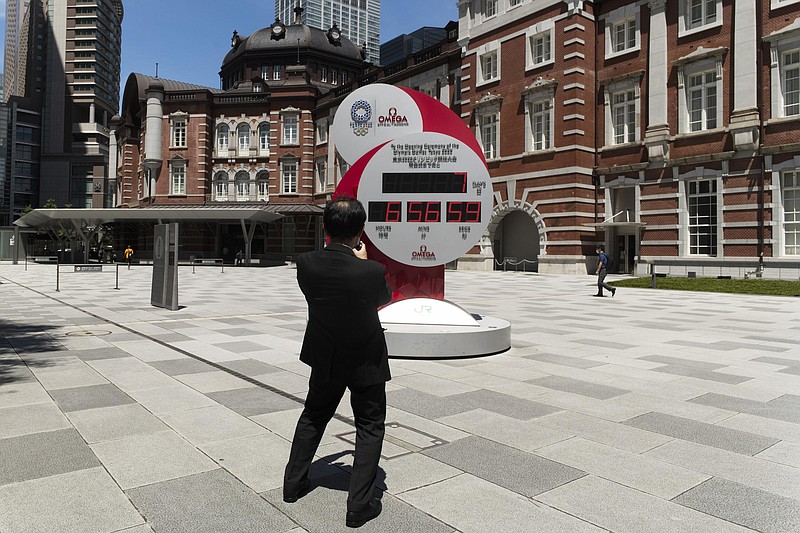“You would hope that (NBC) would be willing to, as much as it is feasible, step out of the Olympics bubble and talk to everyday people in Japan to hear their thoughts,” said Jules Boykoff, a Pacific University professor and author of “Power Games: A Political History of the Olympics,” who has been critical of the decision to proceed with the games.
How much Holt will be needed after opening night is anybody’s guess. Only a determined optimist would believe that no athlete will catch the virus or be exposed. The question is whether it will happen often enough to wreak havoc on the schedule.
NBC tends to handle news at the Olympics in perfunctory fashion and keep the focus on sports. There’s also a history of pre-games concerns melting away once competition begins. Remember the Zika virus? Worries about terrorism in London?
A recent survey suggested there’s not a great deal of public interest leading into the games. COVID restrictions will also mean fewer reporters will be there to cover the events, eliminating some avenues of attention, said John Affleck, professor of sports journalism and society at Penn State University.
NBC considers anticipation levels relatively meaningless before Olympians get into the starting blocks. Andy Billings, director of the sports communications program at the University of Alabama, said he sees positive signs for NBC in the attention paid to televised Olympic team trials.
The lack of a live audience is one issue NBC is working hard to counteract.
The company said it would not pipe in fake crowd noise. That’s a technicality, since the Olympic Broadcasting Service, which provides the video and audio feeds of events that NBC will use, is working to “create … an atmosphere for the athletes so they’re not competing without any crowd murmur or presence,” Solomon said.
NBC is looking to amplify the sounds of competition — the splash of the pool, the interplay between coach and athlete — to give viewers the feel of being there, she said.
Without the broadcast staple of a cutaway to nervous parents in the stands, NBC will try to recreate that by showing viewing parties back in the United States.
NBC’s prime-time coverage will almost exclusively be devoted to swimming and diving, track and field, gymnastics and beach volleyball, as it has in the past. There will be some exceptions, like gold medal games in men’s and women’s basketball.
That lack of variety is less a point of contention than it used to be, since there are other outlets for competition. The time difference — Tokyo is 13 hours ahead of the Eastern United States, 16 hours ahead of the West — means limited opportunity for live coverage in the evening.
All of the consumer options give NBC Universal other ways to make money; NBC prime-time ratings will be the biggest factor, but no longer the sole determinant, of financial success or failure.
NBC Universal announced just before the pandemic shutdown in March 2020 that it had sold a record $1.25 billion in advertising time for the games, then scheduled for four months later. With the games rescheduled, NBC Universal has not publicly updated that figure. The company has said that it expects to exceed advertising sales from the last Summer Games, in 2016, with more advertisers than any previous Olympics.
“If they break even, that is a great success,” Alabama’s Billings said. “If you can simply not lose money and have a massive number of new subscriptions for Peacock, from people checking that out, that’s an incredible promotion for what they probably see as the future of television.”
Peacock is the new wrinkle this year. The service, looking to compete in a streaming world dominated by Netflix and Disney, claims 42 million subscribers. Customers can get it for free, or there are $5 and $10 options with fewer ads and more content.
It is experimenting with Olympics content, much of it highlight-based, although it will offer some events streamed live or later on demand. The $10 option opens access to live U.S. basketball games. The NBCOlympics.com website remains the place for customers to access the most content.
The first U.S. competition predates the opening ceremony: a softball game against Italy that will be broadcast on NBCSN on Tuesday night.
As he prepared to head for Japan this weekend, NBC commentator Ato Boldon, a former track and field Olympian, said he felt no anxiety despite the COVID-19 state of emergency.
“I know this is not going to be a typical Olympic Games,” he said. “But I still feel it has its purpose in not just the sporting landscape this year, but in the human landscape.”

